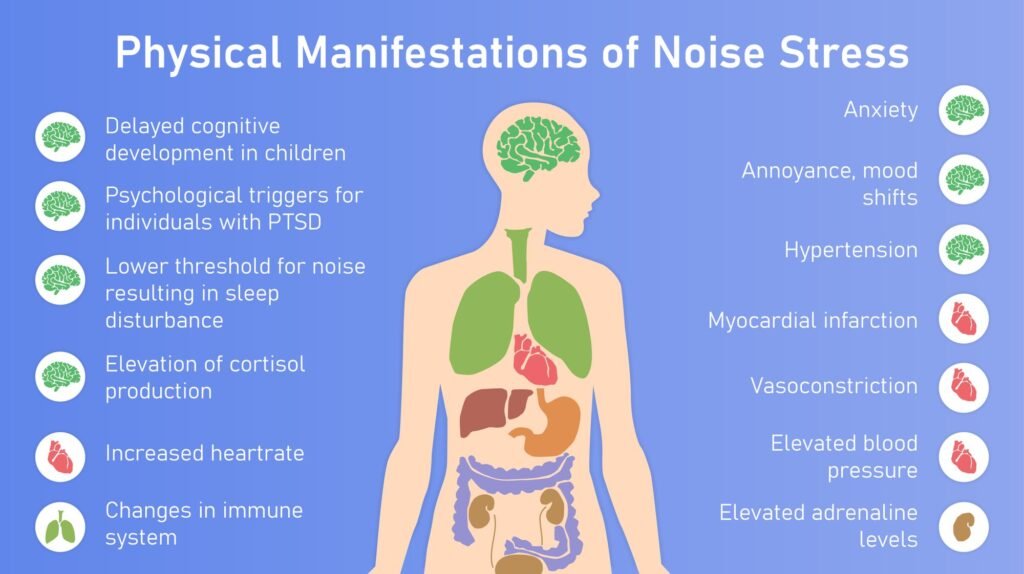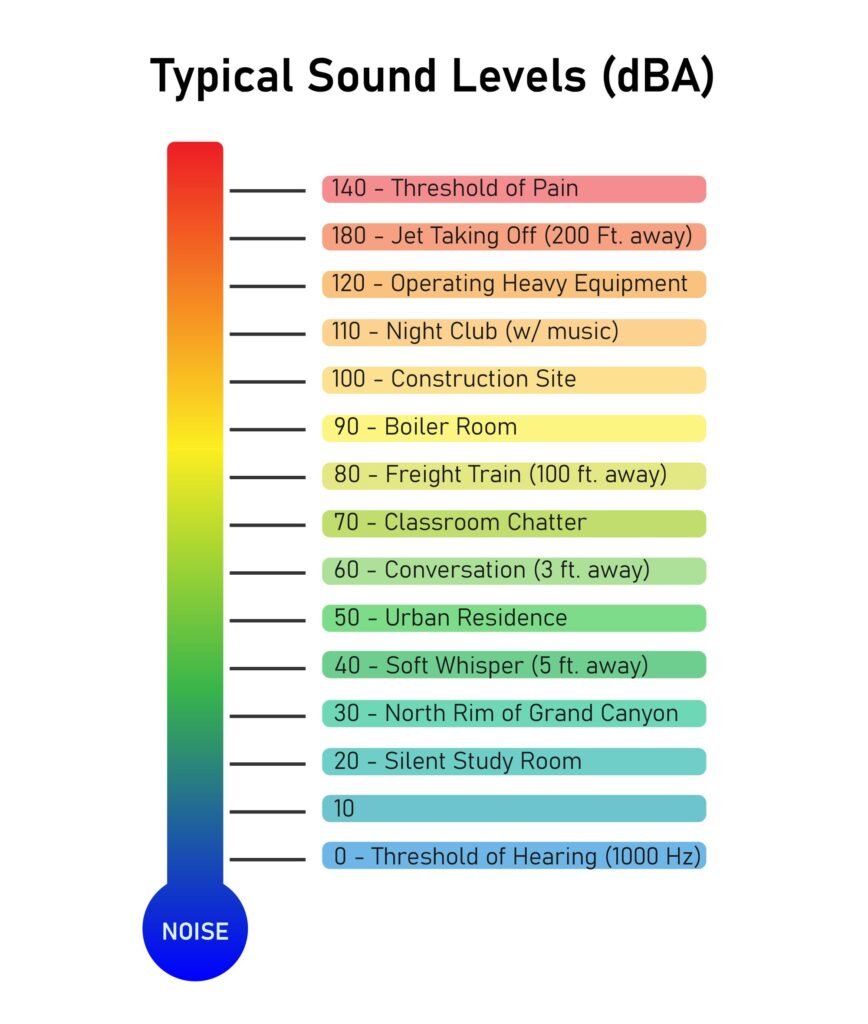Continuous exposure to loud noises can have negative effects on your health, starting from your heart and extending to your brain.
Sounds are created when vibrations travel through the air, ground, or water in waves that cannot be seen. When soundwaves enter your ear, they cause vibrations in the membranes, bones, and hair cells, which then send electrical signals to the brain as sound. However, if the sound is too loud or consistent, it can cause damage to the body.

Loud or repetitive sounds not only harm our ability to hear but can also disrupt our sleep and have negative effects on our overall health.
When your mood is disrupted, your body reacts by activating the fight-or-flight response, which is the same reaction you would have when encountering a threatening situation like a ferocious dog in a dark alley.

While it is common to experience temporary hearing loss or startled reactions from loud sounds, it is important to understand the potential impact on your overall well-being. When the stress response is triggered, you begin to breathe more rapidly, your heart rate rises, and your body releases various hormones.
If you experience occasional or infrequent stress or exposure to loud noises, it may not have significant consequences. However, if this continues over a long period, consistently activating your body’s stress response or being exposed to constant noise can increase your risk of serious health issues such as high blood pressure, heart attacks, and even death related to cardiovascular problems.
Nighttime noise can disrupt sleep patterns by causing people to wake up, making it harder to fall back asleep, and resulting in less deep and restful sleep.

Noise pollution is an intriguing concept because it can vary from person to person based on their life experiences, cultural background, and individuality, causing different perceptions of sound.
“One person’s peace is another person’s chaos.”
The Centers for Disease Control and Prevention believes that approximately 22 million Americans encounter noise pollution in their workplaces annually. Research indicates that certain communities are more prone to this issue than others.
To keep noises from wrecking your sleep, studies suggest playing white noise through the night can help mask other sounds. Experts also suggest modifying your bedroom to safeguard against nighttime noise like adding soft surfaces that help block or lessen noise, such as wall decorations, acoustic tiles, or a thicker bedroom door.
Reference- National Geographic, Centers For Disease Control Study, World Health Organization Report, National Library of Medicine






